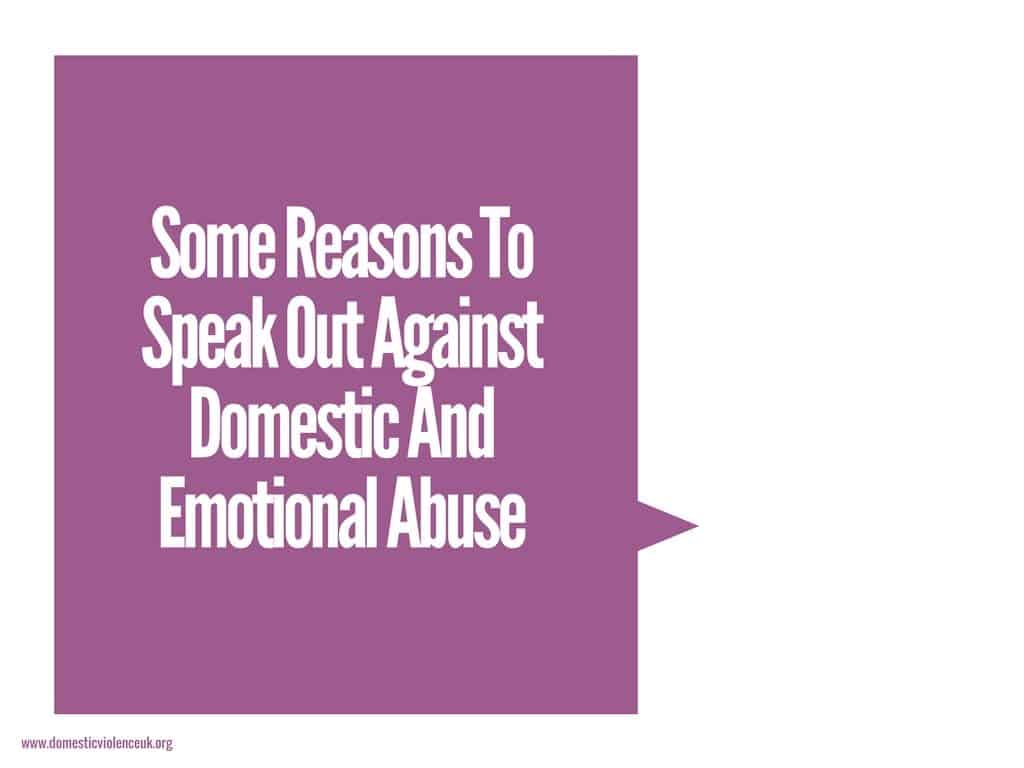
Reasons To Speak Out Against Domestic And Emotional Abuse
The Home Office defines domestic violence as:
“Any incident or pattern of incidents of controlling, coercive or threatening behaviour, violence or abuse between those aged 16 or over who are or have been intimate partners or family members regardless of gender or sexuality.
This can encompass but is not limited to the following types of abuse:
- psychological
- physical
- sexual
- financial
- emotional
Controlling behaviour is: a range of acts designed to make a person subordinate and/or dependent by isolating them from sources of support, exploiting their resources and capacities for personal gain, depriving them of the means needed for independence, resistance and escape and regulating their everyday behaviour.
Coercive behaviour is: an act or a pattern of acts of assault, threats, humiliation and intimidation or other abuse that is used to harm, punish, or frighten their victim.”*
*This definition includes so called ‘honour’ based violence, female genital mutilation (FGM) and forced marriage, and is clear that victims are not confined to one gender or ethnic group.
We should speak out against domestic and emotional abuse because:
- It can happen to anyone, regardless of age, social background, gender, religion, sexuality or ethnicity.
- It happens in all kinds of relationships: heterosexual, lesbian, gay, bisexual and transgender.
- It can be physical, emotional, psychological, financial or sexual.
- It is not acceptable and should not be tolerated whether the victim is male or female.
- Everyone has the right to live a life free from violence.
- It happens all year round and we should be encouraging people to reach out for support every day of the year.
- It is rarely a one off incident. In fact it becomes more frequent and severe over time
- It’s caused by the abuser’s desire for power and control.
- Ignoring it condones it.
- 2 women are killed every week in England and Wales by their current or former partner.
- 1 in 4 women experience domestic violence over their lifetimes.
- Domestic violence has a higher rate of repeat victimisation than any other crime.
- On average, a woman is assaulted 35 times before her first call to the police.
- It represents one of the most serious risks to children in our society.
- No child should have to live with the thoughts of violence or fear.
- It leads to anxiety, depression, truancy and the possible fear of abandonment in children.
- Children may later on have ambivalent feelings towards both the abuser and the non-abusing parent.
- It would break the stigma surrounding the issue of teenage relationship abuse.
- 31% of girls and 16% of boys reported experiencing some form of sexual violence at least once in their lifetime.
- It will draw attention to the fact that men are also victims of domestic and emotional abuse.
- It will break the stereotypical belief that men ought to shrug off verbal, emotional and at times physical violence from their partner.
- 1 in 6 men experience domestic violence
- It will contribute to removing the fear of being ridiculed or disbelieved by friends and family members.
- The abused individual constantly lives in fear and is unable to predict when the next attack will come.
- It leads to isolation from friends, family, colleagues….
- The individual becomes increasingly dependent on the abuser.
- It affects the self-esteem of the individual experiencing the abuse.
- It leads to the individual accepting the blame for the abuse and denying the fact that it’s actually happening.
- Individuals can develop post-traumatic stress which includes a range of symptoms: agitation and anxiety, depression, panic attacks, trouble sleeping or relaxing, numbness, sense of isolation, nightmares.
- It would encourage more individuals to seek support from specialist support organisations.
- You could be saving a life.
If you are in an abusive relationship and requires an urgent response or needs in-depth support please contact the National Domestic Violence Helpline on 0808 2000 247, the Men’s Advice Helpline on 0808 801 0327 or The National LGBT Helpline on 0300 999 5428.
You could also find support organisations using our ONLINE DIRECTORY
Comments are closed.